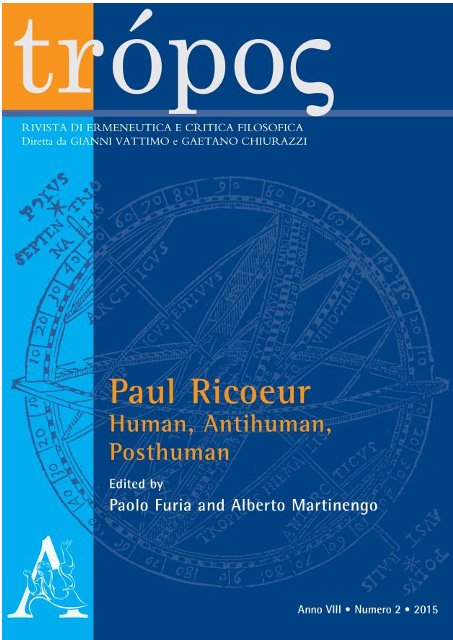Paul Ricoeur’s Hermeneutics of the Self
DOI:
https://doi.org/10.13135/2036-542X/7972Keywords:
Attestation, hermeneutics of the self, philosophies of the subject, psycoanalytic critique of the cogito, wounded cogitoAbstract
This paper sets out to reappraise Ricoeur’s theory of the self, offering a critical commentary on three important theses regarding Oneself as Another: those of Domenico Jervolino, Johann Michel and Jean Greisch. It challenges the commonly held assumption that the “hermeneutics of the self,” which Ricoeur introduces in that work, is continuous with his earlier works on a “reform” of subjectivity. It discusses three considerations which indicate that, from the mid to late 1980’s onwards, Ricoeur did not view “the subject” and “the self ” as one and the same. It argues that the “guiding thread” in Ricoeur’s work is infact a critical engagement with Descartes’ Second Meditation. This sustained but evolving critique of the Second Meditation is almost always the occasion for innovation. However, when it occurs in Oneself as Another it gives rise to a revolution: a break with the “philosophies of the subject” and a rapprochement with Heidegger.


